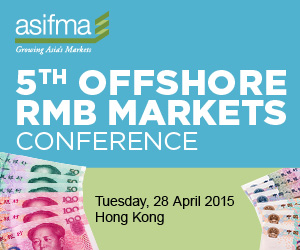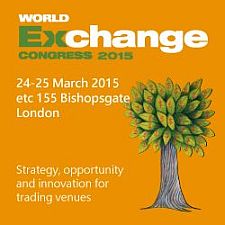Singapore
Disclosure Requirements
Shareholdings in this market may be required to be disclosed by the beneficial owner, particularly when such shareholdings reach or exceed prescribed disclosure limits. Investors must ensure that they comply in full by reporting such holdings to the appropriate organizations for this market, within the time-frame required. If you have any questions regarding this issue we encourage you to consult your legal counsel.
Failure to comply with the reporting requirements in this market may lead to penalties and / or other sanctions.
Under the Singapore Companies Act Cap 50, base on Part (1) Section (81), a substantial shareholder is one who holds not less than 5% of the aggregate of the nominal amount of all voting shares in a listed company and is required to inform the company and the Singapore Exchange (SGX) within two business days of his becoming a substantial shareholder. If you have any questions regarding this issue we encourage you to consult your legal counsel.
The same procedure applies to the following securities traded on the Singapore Exchange (SGX).
Real Estate Investment Trusts (REITs)
With effect from July 1, 2005, substantial unit holders of REITs have to declare their deemed and direct holdings to both SGX and the trustee of the REITs under Sections 137A and 137B of the amended SFA. The threshold limit is 5% also. The disclosure requirements are similar to substantial shareholding disclosures detailed above for shares. The only difference is the reporting to the trustee of the REITs instead of the company.
Bank shares
For bank shares, any person seeking to acquire a substantial shareholding of not less than 5 %, 12 % or 20 % of the paid up capital of a designated financial institution is required under Section 17 of the Banking Act Cap 19, to obtain prior approval from the Monetary Authority of Singapore (MAS).
Newspaper
In the case of the local media, Singapore Press Holdings, there is a restriction imposed on any single party from holding more than 5 % of its voting shares. Approval must be sought from the regulatory body, the Ministry of Information, Communications and the Arts (MITA) before a single party can hold more than the stipulated limit of the shares.
Buy-Ins
The SGX will buy in on a defaulted delivery at 11:15 on SD+1. The buy-in price is the higher of two minimum bids above previous day’s close, the current last transacted price or the current bid price, whichever is the highest. If the shares cannot be obtained the SGX will raise the bids higher until all shares have been bought in. Similarly, a selling broker can sell out against a defaulting buyer if the payment for the purchase is not received on settlement date.
Effective November 1, 2000, buying-in brokerage will be fixed at a flat rate of 0.75%. In addition, SGX imposes a punitive fine of SGD100 per day that the contract is overdue.
There is a transfer fee of SGD10 per contract and processing fee of SGD30 for every withdrawal of buying-in.
Compensation Fund
Fidelity Fund - SGX is required under the Securities and Futures Act to establish and administer a fidelity fund. This fund is used to compensate any person who suffers pecuniary loss due to a defalcation committed by a member company, or any of its directors or employees. The new Act has a limit of SGD2 million per company and the limit per claimant is SGD50,000.
Anti-Money Laundering
Singapore is fully committed to the global fight against terrorism, and has signed various anti-terrorism conventions, including the United Nations International Convention for the Suppression of the Financing of Terrorism. Singapore has been a member of the Financial Action Task Force since 1991, and is also one of the founding members of the Asia-Pacific Group on Money Laundering (APG), which encourages the adoption, implementation and enforcement within the Asia-Pacific region of internationally accepted anti-money laundering standards.
The Monetary Authority of Singapore (MAS) participates in the Singapore Inter-Ministerial Task Force on Anti-Terrorism, set up shortly after September 11, 2001. MAS also participates actively in global efforts to combat money laundering, aimed at preserving the integrity of the global financial system. MAS seeks to combat money laundering by requiring banks to apply the following principles documented in MAS Notice 626:
1. Know your customer: banks shall obtain satisfactory evidence of the customer’s identity, and have effective procedures for verifying the “bona fides” of new customers.
2. Compliance with laws: management shall ensure that business is conducted in conformity with high ethical standards, that laws and regulations are adhered to, and that service is not provided where there is good reason to suppose that transactions are associated with money laundering activities.
3. Co-operation with law enforcement agencies: within legal constraints relating to customer confidentiality, banks shall co-operate fully with law enforcement agencies. This includes taking appropriate measures allowed by law if there are reasonable grounds for suspecting money laundering. Disclosure of information by banks for the purposes of the Act (suspicious transaction reports) shall be made to Head, Suspicious Transactions Reporting Office, Commercial Affairs Department (STRO). To facilitate the process, banks shall identify a single reference point within their organization (usually a relevant officer of the bank) to which staff are instructed to report suspected money-laundering transactions promptly.
4. Policies, procedures and training: each bank shall adopt policies consistent with the principles set out in this Notice, and ensure that its staff, wherever located, are informed of these policies and adequately trained in matters covered by this Notice. To promote adherence to these principles, banks shall implement specific procedures for customer identification, retention of financial transaction documents, and reporting of suspicious transactions.




